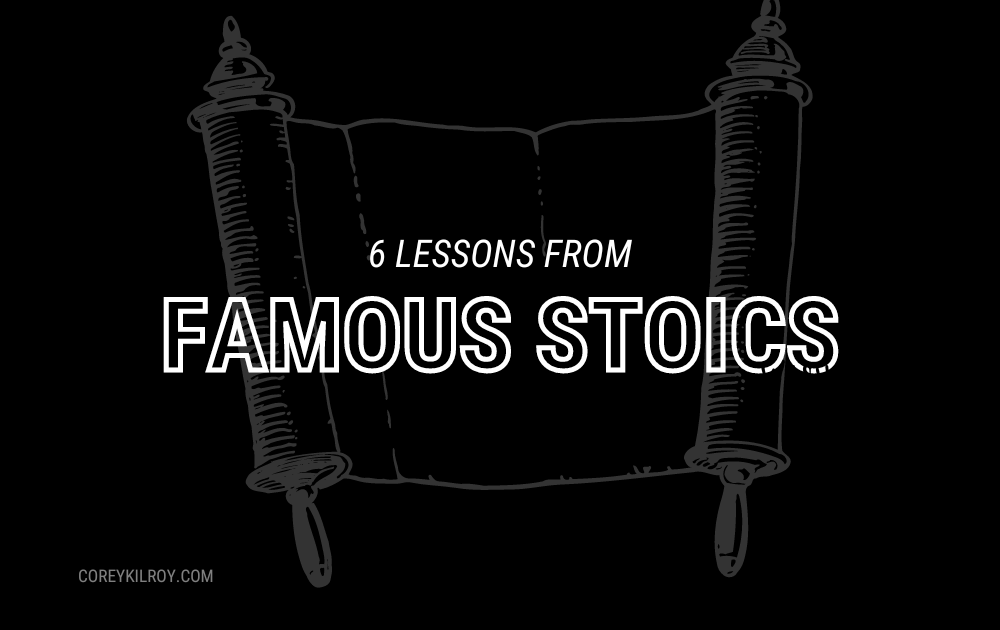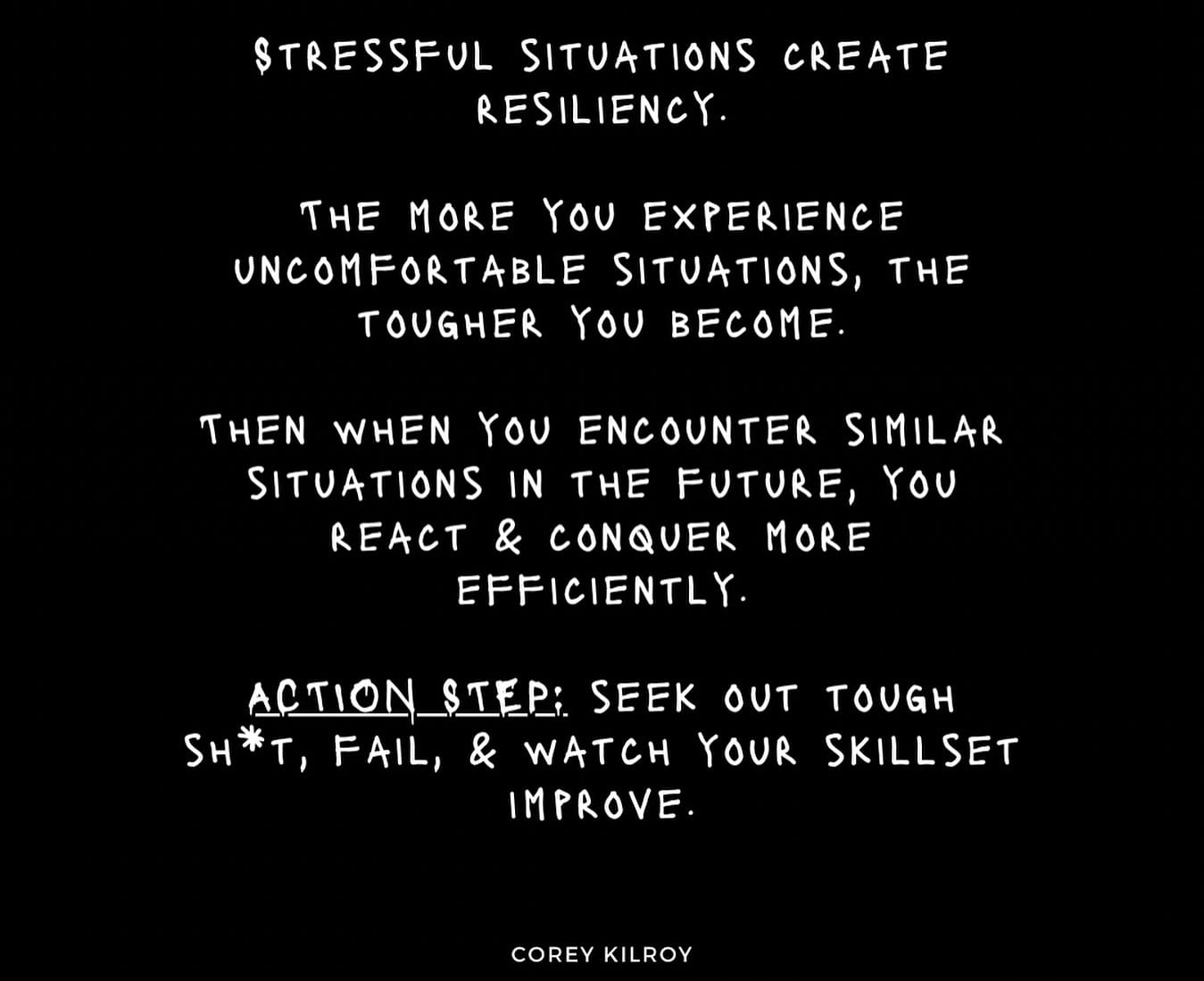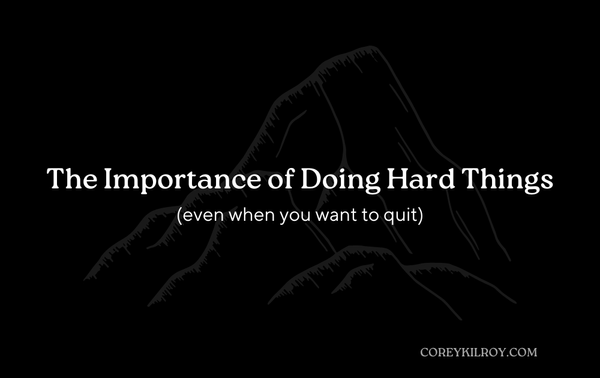6 Lessons From Famous Stoics

If you know anything about philosophy, then you’ve most definitely heard about Stoicism.
Stoicism was one of the dominant philosophical systems of the Hellenistic period and was the dominant philosophy in the Roman and Greek worlds until the Christian religion took over about 500 years later.
The founder of Stoicism was a man named Zeno of Citium, however, the three most widely known Stoic philosophers were Marcus Aurelius (a Roman Emperor), Seneca (a politician and playwright), Epictetus (a slave).
Unlike other subtypes of philosophies, Stoicism is still relevant and easily applied to our daily lives today.
It’s a tool that we can use to navigate the ups and downs of our lives, and contains a plethora of valuable lessons that we can apply to become the best version of ourselves.
Let’s dive into 6 life lessons taught by the Stoics...
1. Focus on what you can change, and don’t worry about the things you cannot.
“The chief task in life is simply this: to identify and separate matters so that I can say clearly to myself which are externals not under my control, and which have to do with the choices I actually control. Where then do I look for good and evil? Not to uncontrollable externals, but within myself to the choices that are my own...” ―Epictetus
Personally, I think this is the most practical of the Stoic practices.
I talk about it all the time and this principle is where it stems from; you must focus on the “controllables” in life and forget about the rest.
Chronically worrying about the factors that are not in our control will only create anxiety and paralyze us from taking action even further.
Instead, action creates movement and inertia, ultimately developing into results in the long-term.
It’s the ability to differentiate between the things that are under your control and those that are not.
2. Bad things happen. Don’t be surprised, be prepared.
“To bear trials with a calm mind robs misfortune of its strength and burden” –Lucius Annaeus Seneca
The Stoics were known for practicing an exercise known as Premeditatio Malorum (aka “the premeditation of evils”).
This practice works by starting each day by imagining all the things that could possibly go wrong throughout the day.
This may sound a little counterintuitive, but hear me out.
This works so that when we do inevitably encounter setbacks and adversity, we are less likely to ball up into a quivering mess.
Instead, we are prepared and ready to respond in the most positive way possible.
A practical way to visualize this is by thinking about professional athletes.
Many of the greats are known for spending thousands of hours studying film - what moves their opponents liked to make, typical plays that were called during certain scenarios, etc, etc.
Many know that this is a tactic used as a way to get a “one up” on their opponents during game-time, but there’s another reason.
Athletes who study countless hours of film also simultaneously “prepare for the worst” by doing this.
Being well prepared for unorthodox scenarios, studied on film, equips athletes so that they’re not surprised when something out of the ordinary does happens.
And this can be said for us during our everyday lives as well.
3. Appreciate what you have
“He is a wise man who does not grieve for the things which he has not, but rejoices for those which he has.” –Epictetus
This is a very cliché lesson, but one that we often find ourselves in need of reminding.
This is especially relevant today with social media and comparison, plus the transition to a very materialistic society.
Practicing gratitude regularly has been shown to increase happiness.
And it makes sense because it forces you to focus on the things you have, instead of focusing on the things you don’t have.
I write about this in my essay, The Grass is Not Always Greener.
4. Treat every problem as an opportunity
“The impediment to action advances action. What stands in the way becomes the way.” –Marcus Aurelius
There’s a concept, amor fati (a love of fate), that German Philosopher Friedrich Nietzsche liked to write about.
The idea here is that you accept what happens in life, the good and the bad, embracing it and being grateful that it happened...

This can be a hard one to practice, especially during difficult times, but that’s when it’s most important.
Hard sh*t and adversity is what creates resiliency. We gain invaluable lessons through failure, ultimately equipping us with tools we can use to thrive in the future.
The Stoics loved this principle and it coincides perfectly with Lesson 1 (Focus on what you can change, and don’t worry about the things you cannot).
Even though you can’t control everything that happens to you, the one thing you do always have control over is how you respond to a problem.
By embracing this attitude, we can turn life’s lemons into lemonade, and we can welcome life’s adversity as a way to advance and improve.
5. Don’t fear death - use it as motivation to give your life purpose.
“As each day arises, welcome it as the very best day of all, and make it your own possession. We must seize what flees.” –Seneca
When the Stoics weren’t meditating on some life-changing lessons, they also spent a lot of time reminding themselves that death was inevitable!
This practice was known as memento mori – meditating on your mortality.
You might be thinking, “man these Stoics were a morbid bunch”, but the principle behind this practice is actually a positive one, which was designed to increase happiness.
Being aware that we are going to die and that it could happen at any moment is intended to deliver two important benefits.
First, we should not fear death, simply because it is inevitable and we all die eventually (again, refer to lesson one – focus on the “controllables”).
Secondly, and more importantly, it gives us a sense of purpose and urgency by reminding us not to waste the precious time that we do have available right now.
After all, time is our greatest asset in life. Use it methodically.
6. Never stop learning.
“It is impossible for a man to learn what he thinks he already knows.” –Epictetus
Before the Stoics, it was Plato who famously said: “The more I know, the more I realize I know nothing.”
And the Stoics also adopted this philosophy in their teachings.
This is an important lesson to remember, especially if you find yourself getting a bit big headed at times.
There is no such thing as the perfect human. We are continually evolving and learning new lessons as we go (at least I hope you are).
I constantly need to remind myself of this because I often fall victim to perfectionism.
However, if we focus too much on being “perfect”, then we limit ourself from failing and learning valuable lessons… But that’s for another essay.
Ultimately, it’s important to keep an open mind and allow ourselves the freedom to learn and improve.
It’s also important to approach life with curiosity and assume that everyone you meet may know something you don’t.
Never find yourself in a position where you think you know everything because in reality, that’s never the case.
There’s always going to be someone better or smarter than you and that’s okay. That’s how we learn and evolve.
In the end…
These are 6 of many, many lessons that Stoic Philosophers have graced us with.
These lessons and principles will stand the test of time simply because of their practicality no matter what the state of society is in.
I’ve started to realize that when in doubt, learn from the wisest thinkers and philosophers because their wisdom and writing never fails to enhance my day-to-day life.
Be well and Keep Pluggin’.
-C.



